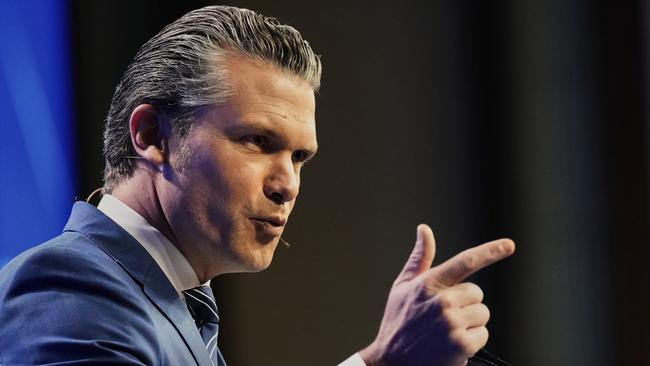
We’re in danger of missing the historic significance of what happened at the Shangri-La security dialogue involving US Defence Secretary Pete Hegseth, Australian Defence Minister Richard Marles and, back home, Anthony Albanese. Historians may well look back on this moment as a pivot point in Australian history.
Hegseth had two historically important messages. Marles claimed to hear them. Albanese treated both with contempt. Hegseth made the strongest statement yet that the Trump administration would support Taiwan militarily if it were attacked by China. He suggested Beijing could take military action against Taiwan “imminently”.
Hegseth is a complete Trump loyalist and it can only be that these messages to Beijing are fully authorised by Donald Trump. Hegseth is telling the truth that Trump is determined Beijing won’t invade Taiwan while he’s President. In his speech, Hegseth also said US allies in the Indo-Pacific, facing the threatening Chinese military build-up, should be spending more on defence. Some are doing just that.
Japan has effectively doubled its defence budget. The new US defence budget incorporates a 13 per cent increase to a cool $US1 trillion ($1.5 trillion).
Hegseth said: “Our defence spending must reflect the dangers and threats that we face today. Because deterrence doesn’t come on the cheap … Time is of the essence. We must … move out with urgency.” America is doing exactly what it’s asking its allies to do. In fact it’s one-sided.
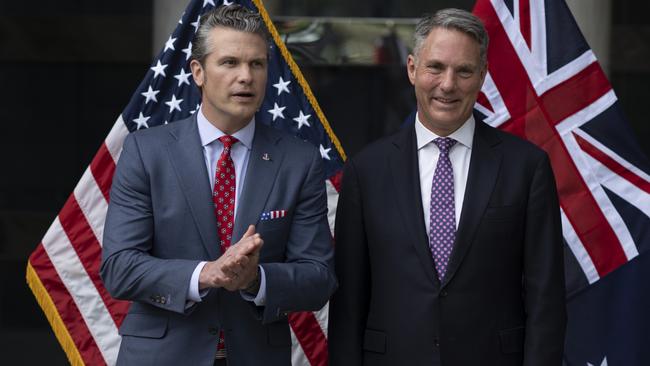
To every ally, certainly to Australia, the US gives vastly more security than it gets back.
If Australia became pacifist this would have a small, negative effect on American security.
If the US abandoned its alliance with Australia, we would be utterly defenceless. We could quintuple our defence budget and not get a fraction of the security we get from the Americans.
Marles made a strange speech to the Shangri-La Dialogue, more like a woolly foreign affairs thumb-sucker than a Defence Minister’s speech. He called for new emphasis on arms control treaties. Of course, more multilateral processes – just what we need to deter the Chinese from taking military action against Taiwan. Brilliant!
Don’t get me wrong, arms control treaties can make a contribution. They’ve got nothing to do with the urgent tasks of today. But the whole point of the Albanese government, domestically and in national security, is to avoid the urgent tasks of today.
Nonetheless, Marles nodded to the idea that deterrence was under challenge. The way to reinforce deterrence is enhanced allied military capability.
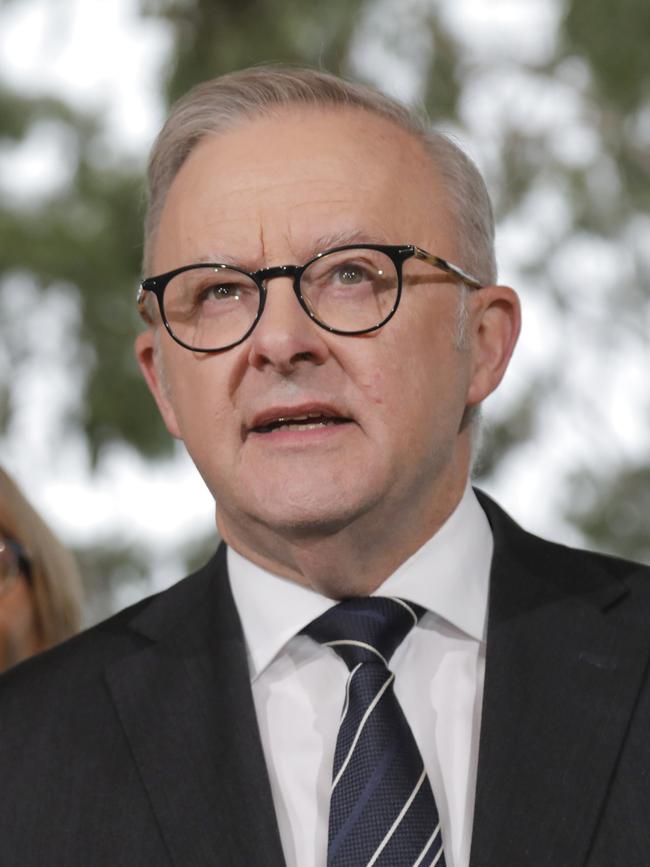
Which leads to Hegseth’s second historic action. He privately raised with Marles the obvious, blatant, crying need for Australia to do more for itself on defence capability. The Labour government of Keir Starmer in the UK has raised defence spending to 2.5 per cent of GDP and will go to 3 per cent. Australia is stuck at a pathetic 2 per cent of GDP, which is just what it was when Albanese came to government.
The Australian Strategic Policy Institute last week issued a sober, rigorous, conscientious report in which it said the current defence budget was wholly inadequate to the strategic tasks. Albanese abused ASPI for this, accused them of being politically partisan and said they needed to take a good look at themselves.
Yet every single person the Albanese government itself has officially appointed for guidance on defence policy says the same thing as ASPI. Former defence force chief Angus Houston, whom Albanese tapped to lead the Defence Strategic Review, says we need at least 3 per cent of GDP. So does Peter Dean, the lead author of the DSR. So does Dennis Richardson, former head of Defence. So does Kim Beazley, the last Labor defence minister of any real consequence. Do these men also need to take a good look at themselves?
Hegseth actually asked Marles to consider taking defence spending to 3.5 per cent of GDP. We only got to hear of this from a Pentagon briefing. The Albanese government never levels with us on defence.
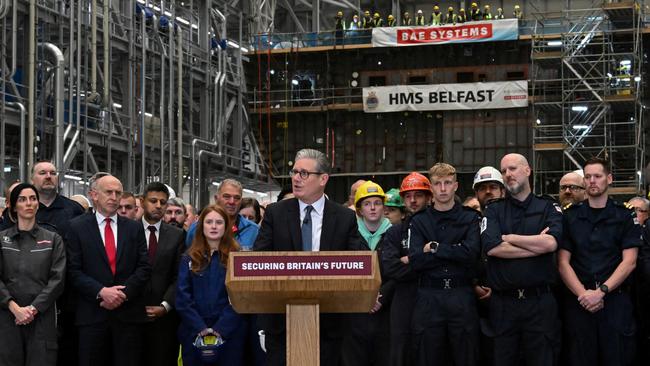
If we moved to 2.5 per cent initially that would be an extra $13bn a year. Missile defences, drones, counter-drone capabilities, de-mining ships and a thousand other things should top our buying list. If we took defence spending to 3 per cent of GDP that would be an extra $13bn on top of that. Then we might even think of something radical like a minor expansion of our very small defence force. We need money now just to make what we’ve got work.
A government always has to build a defence force of the distant future and one for the next five to 10 years. Our two giant projects, the AUKUS subs and the Hunter-class frigates, will consume much more than $100bn before they give us any capability, at soonest in the mid-2030s.
The Ukrainians have just shown us what drones can do in modern warfare. Yet the Australian Defence Force under Albanese and Marles has made no significant investment in armed drones, nor in counter-drone capabilities.
Marles told Hegseth he was “up for that conversation” about increasing our defence spending. Albanese treated both Marles and Hegseth with contempt. We will decide our defence budget, Albanese fatuously declaimed. OK, does this mean we’re fine if the Americans walk away from our security?
Albanese further said his government had allocated $10bn more for defence across the forward estimates, which is about two-thirds of diddly-squat. But here the loquacious, Euclidean Albanese asserted himself. Instead of picking a percentage of the GDP, he smugly explained, you should choose what defence assets you need to defend the country and then pay for them.
What a brilliant rhetorical joust! So tell us, PM, what actual defence assets has your government secured for Australia? The answer is none. We’re less capable militarily now than when Albanese was first elected.
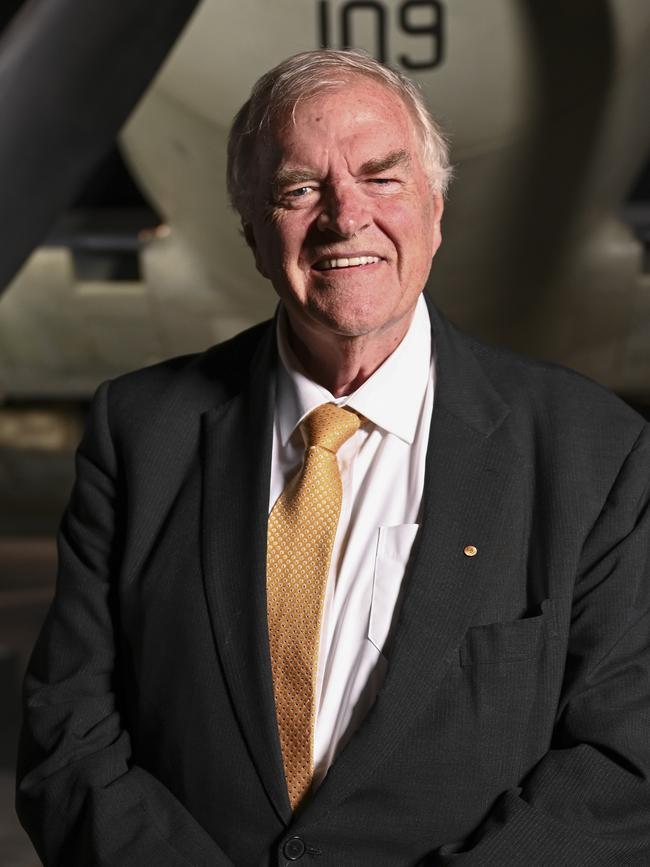
Our defence budget crisis has two obvious dimensions. You can’t acquire nuclear-powered submarines and keep your defence budget static without cannibalising all your other capabilities. And second, as the government has repeatedly told us, these are the most dangerous strategic times we’ve faced since World War II; we need much more defence capability, not the business-as-usual minus that the Albanese government has given us.
In their more honest moments senior Labor figures admit they plan to have virtually no significant capability over the next 10 years. Whatever happens between America and China the Americans will handle, they think. We’ll commit our flag, some temporary basing and a token force in any emergency.
Albanese has decided not to take Australian security seriously. The Trump administration is right to call him out over it. Albanese has weakened the alliance, and our security.





